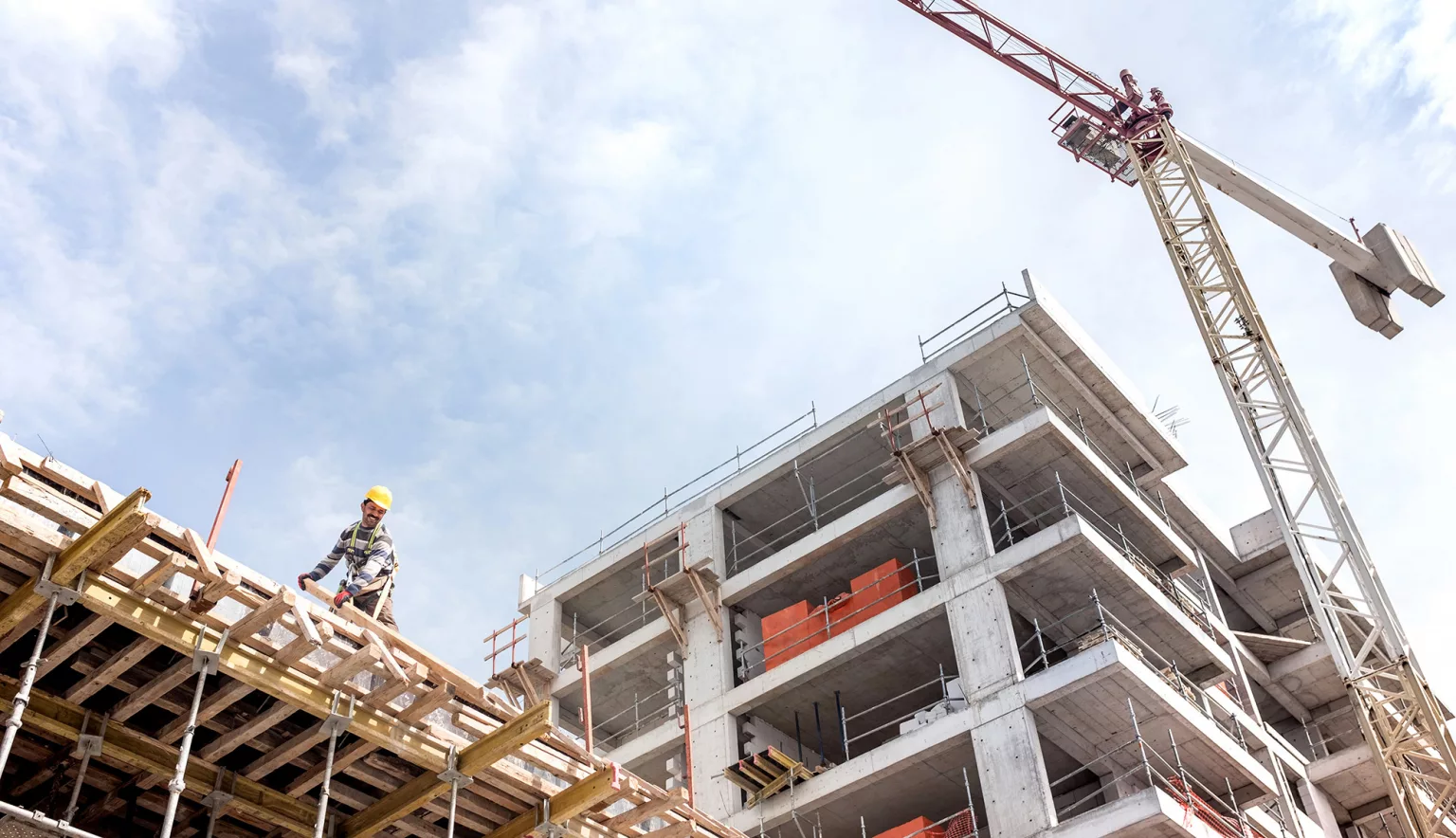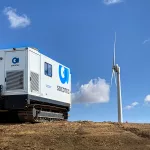A.R. Hourie has been a mainstay in Lebanon’s construction industry for several decades, the firm involved in crucial infrastructure projects and a number of other high-end buildings.
A LEBANESE LEGACY
I like to be in the action when the action is at a start,” muses Ramzi Salman, CEO of Lebanese construction firm A.R. Hourie.
An industry veteran with decades of experience spanning his home country and the United States, where he was a contractor for eight years, Salman knows better than most the nuances of Lebanon’s building sector.
Indeed, his hands-on approach and attention to detail have reverberated through the company he now leads, helping it to navigate the challenging periods and thrive when times are bright.
And the present day, in Salman’s eyes, reflects the latter.
“If you asked me about the industry here two years ago my answer would certainly have been pessimistic,” he says. “However, the picture now is different. Lebanon is receiving major financial contributions to rebuild its infrastructure, and so there is going to be an influx of projects which we are starting to see emerge”
Infrastructure is where the company began carving its stellar reputation, A.R. Hourie almost exclusively executing these kinds of projects when Salman first joined.
He recalls: “I spent eight years as a contractor in the US before coming back to Lebanon to join the company’s founder A. R. Hourie in 1994, when the country was undergoing a big afterwar reconstruction programme.
“The company was at a point where it needed uplifting or else it would have struggled to survive. When I came back, I opened up the building construction division, adding to the infrastructure and road building expertise that it had been based on previously.
“This opened up many opportunities and projects, especially with company headquarters and hospitals, although we continued to work on many important infrastructure developments such as the expansion of the Port of Beirut.”
HIGH-END EXPERTISE
Salman assumed leadership of A.R. Hourie in 2010 following the passing of A. R. Hourie next to whom he worked for 16 years rebuilding the company and has been determined to honour his legacy ever since.
Such endeavours are best showcased by a string of landmark developments such as the Souks of Beirut designed by Raphael Moneo, the Zaytouna Bay designed by Steven Holl, and the latest department store designed by Zaha Hadid, the CMC Hospital affiliated to Johns Hopkins as well as major headquarters for various banks completed in Lebanon’s capital city, Beirut, the most recent of which being a standout build for First National Bank. This is one of several HQ office projects handed over in recent years for leading financial institutions in the country.
“First National Bank is a particularly special example,” Salman says proudly. “This was designed by a prominent architect in Lebanon by the name of Raed Abillamaa and is very much an avant-garde structure.
“The components used are also very high-end and not what you would describe as classic building materials – for example, the tiling inside is made using aggregates that give an industrial appearance. The façade is something special, and the project is sustainable with all the building information management systems in place to monitor things like energy usage.”
The project consists of eight basements, a ground floor with landscaped area and 12 floors, with a total built-up area of 18,000 square metres.
First National Bank resembles Salman and A.R. Hourie’s strategy to target high-end developments designed by leading architects, as was the case with recent projects for shipping company CMA-CGM, among others.
That it is able to do this is thanks to an unrivalled pool of talent that the organisation employs, a deliberate mixture of bright young engineers and industry stalwarts who have been able to pass down their expertise and experience gained over many years.
“Lebanon is blessed with a high level of education and we are able to find very proficient people in the field of engineering and construction, especially given that the environment has become tougher in recent times across the whole region,” Salman explains.
“Our workforce is a mixture of young graduates and experienced heads who have been with us between 20 and 40 years – most are between 25 and 35, and this makes for a very dynamic group. We insist on having a wide mix of people, both in terms of age and also cultures and backgrounds.
“While we are a growing company, I want us to retain a family feel to our working environment. I like to call us a small big company in Lebanon.”
DIVERSIFIED
Salman’s liking for high-end projects is not to suggest that A.R. Hourie is not still a key player when it comes to infrastructure, however.
The company continues to work on some of the country’s most important developments, not least in the form of essential roadbuilding activities.
For example, the past 10 years have seen it construct a crucial section of the highly anticipated Pan Arab Highway, in particular an eight-lane, 17 kilometre stretch of motorway between Namliyeh Bridge in the Bekaa and the vicinity of the Syrian border.
It is a 50-50 joint venture with fellow Lebanese contractor CET, the work expected to be valued at around $300 million once completed.
“I think it could run for another two to five years because there are zones of the project that needed soil consolidation, which required an international consultant coming in to study the extent of the work that needed doing,” Salman adds. “This requires financing and could take time.”
Another vital highway project is the A1 road, dubbed the Jounieh highway the heaviest traffic road in Lebanon, outside of Beirut.
“We recently signed up to this development, which involves doubling the circuit of the road over a 10.5-kilometre passage,” Salman continues.
“It is fully financed by the European Investment Bank and is a very challenging proposition, involving side lanes, overpasses and bridges, and even the possibility of creating an upper deck for public transportation. It should be completed in 30 months and will deliver great benefits as the A1 is currently very congested.”
Another interesting project has involved streetscaping in the historical part of Beirut, which is mainly the area around the parliament building and the souks. Here, A.R. Hourie has helped to regenerate the area and give it a new lease of life.
The country’s national library has also been transformed; the old Ottoman building being converted into a state-of-the-art facility in a project financed by the state of Qatar.
FURTHER AFIELD
Outside of Lebanon, A.R. continues to build on the inroads made since it decided to spread further afield in 2015.
This was a time when the home market suffered a steep and rapid decline, a period which necessitated the move into international markets (Dubai, Ivory Coast and Cyprus) in order to spread risk across a wider portfolio.
In Dubai, A.R. Hourie has AED 220 million ($60 million) of work in the pipeline, much of this being in the area of high-end residential developments and light commercial projects such as fuel retail stations and small community malls. Beyond this it has contracts secured for a school project and company headquarters.
“We have also taken our first project in the Ivory Coast,” adds Salman.
“This was financed by the World Bank and involves the clean-up of a lake in San-Pedro – we expect this will be delivered in January 2020. In Abidjan, we have just been awarded a project to build a water channel of 28 metres in width which is valued at around $30 million and will begin before the end of 2019.
“Our next big move will come in Cyprus, where there is a lot of demand for high-rise buildings. We were just awarded a 30-story tower on the front corniche of Limassol”
By spreading risk across different markets, Salman and A.R. Hourie are safeguarding the future of the business for decades to come, and although triggered at a time when the Lebanese market was suffering, the turnaround in fortunes over the past two years leaves the CEO all the more optimistic about the future.
He concludes: “Despite the great economical difficulties that Lebanon is going through, I feel bullish about the next five to six years. Even thought the competition is very tough, we are able to compete on the foreign markets and have a long legacy and reputation to draw on.
“The private sector is more difficult, but we will continue to bid for high-end projects and believe our reputation will allow us to take our share of these developments over the next few years. We deliver projects on time, on budget and with very few snags.”
























